In this article you'll read :
- Quick intro on what endless os is.
- Requirements.
- How to install it.
- Essentials updates.
- Updating gems.
- Removing toolbox (if needed)
1. Quick intro :
Some of you might wonder what the hell is endless OS?!
Short answer : it's is a Linux-based operating system but it works kinda different. If you'd like to know more about it, you can check this out
And if you're an andless OS user , you already know what this is. so we're moving on.
2. Requirements :
But before getting started with jekyll, you need to install the requirements :
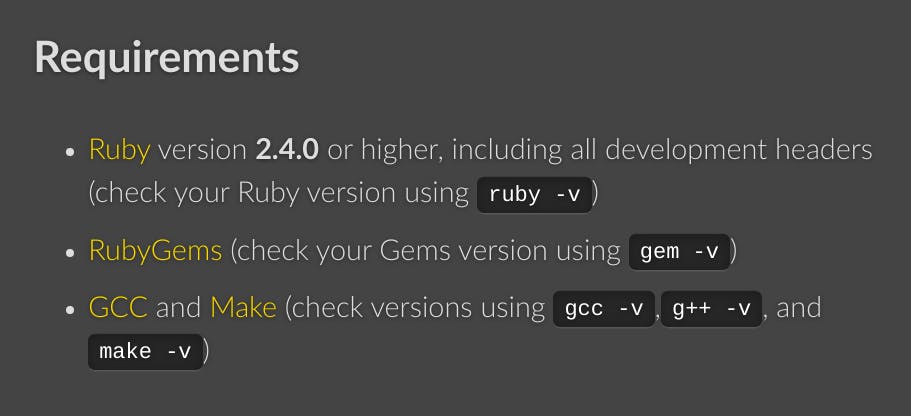
If you goolge "how to install ruby on linux" and go to the ruby's official page for installation you'll see that none of the commands work.
I literally spent 2 days on how to install the requirements. So I'm just gonna save you from wasting your time and googling and all the headaches.
As I said none of the commands will work because endless OS is only compatible with Flatpak Applications and ruby doesn’t have a Flatpak version BUT there is a way to install it .
3. How to install it :
Step One
For installing ruby, you need to install toolbox first :
toolbox create --release f33
and then run toolbox :
toolbox enter --release f33
After that you can easily install ruby (inside the toolbox) using this command :
sudo dnf install ruby
Step Two
Now you need "Rubygem", "GCC" and "Make"
Run this command inside the toolbox and it will install the development tools
sudo dnf -y groupinstall "Development Tools"
Step Three
You're almost done. All you need to do is to run this command in toolbox and install jekyll
sudo dnf install jekyll
You're all set and done with the installation.
Now you can create your first Jekyll site
Install the bundler gems
gem install jekyll bundlerCreate a new Jekyll site
jekyll new myblogChange into your new directory
cd myblogBuild the site and make it available on a local server
bundle exec jekyll serve --livereload
--livereload flag will automatically refresh the pageGo to localhost:4000
For more information you can head over to Jekyll's site and read the documents .
PS. Remember, You have to run the commands in toolbox :
toolbox enter --release 33
4. Essentials updates.
It is recommended that you update Jekyll as often as possible. Here are the update commands :
sudo apt update
Updating Jekyll
gem update jekyll
Updating bundle
bundle update jekyll
or
bundle update
Check this out for more information.
5. Updating gems :
You might get some errors after trying to run jekyll, something like this, Or any other error related to not finding a specific gem:
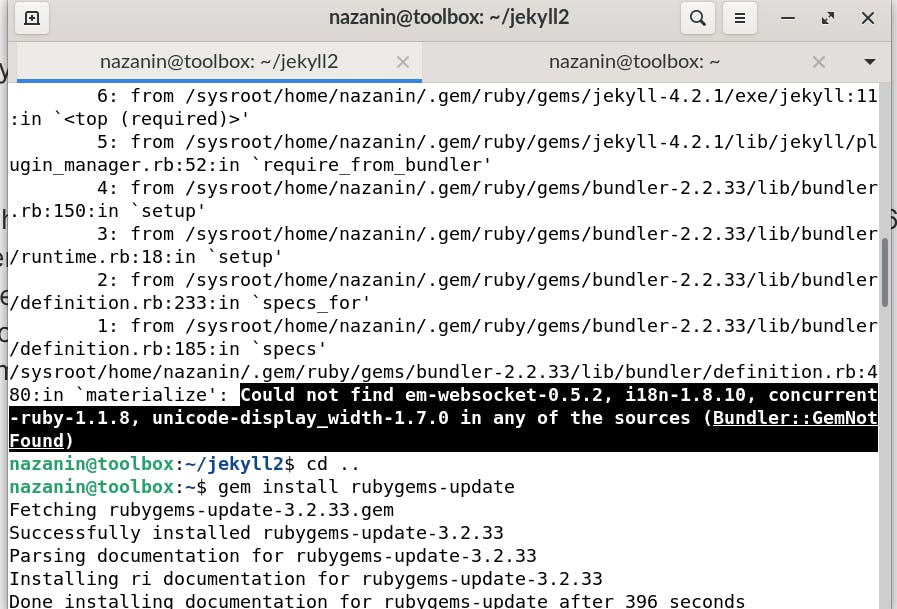
First run this command to see all the list of gems that are installed.
gem list
When I checked the list , I saw that I already had the different version of those gems. But I needed the specific version.
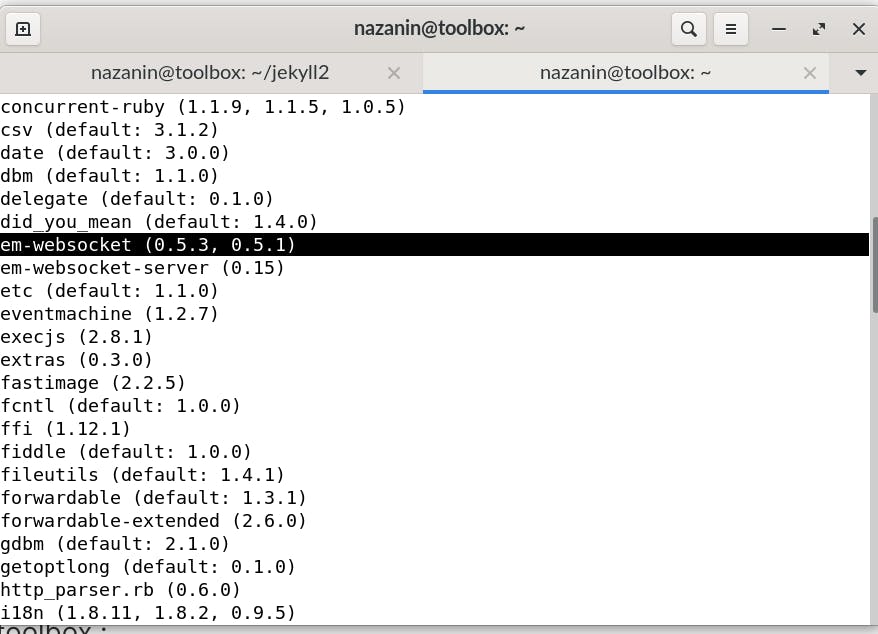
By going to Ruby gems site , you can find any gems and install them.
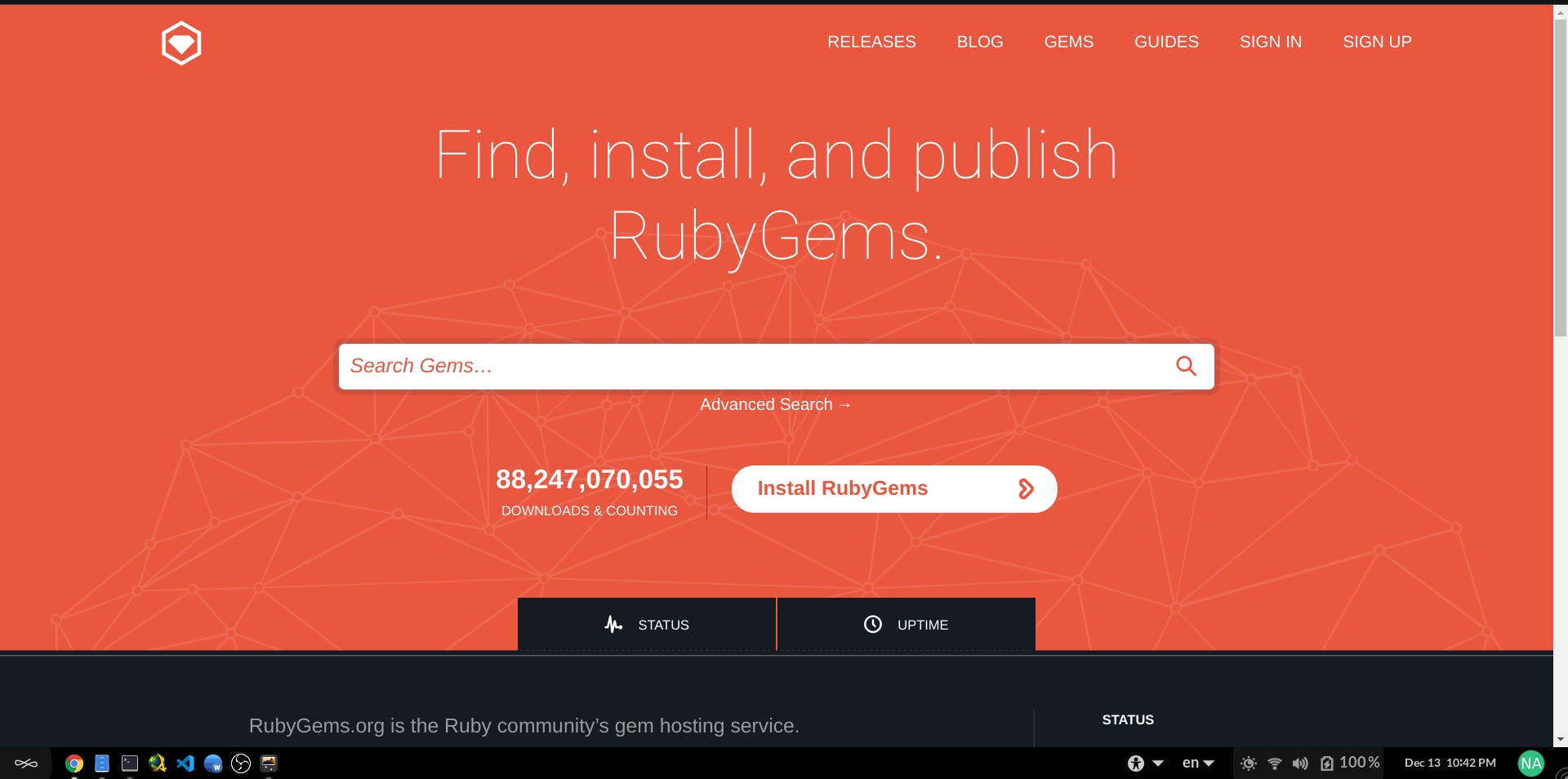
You can also find the older versions :
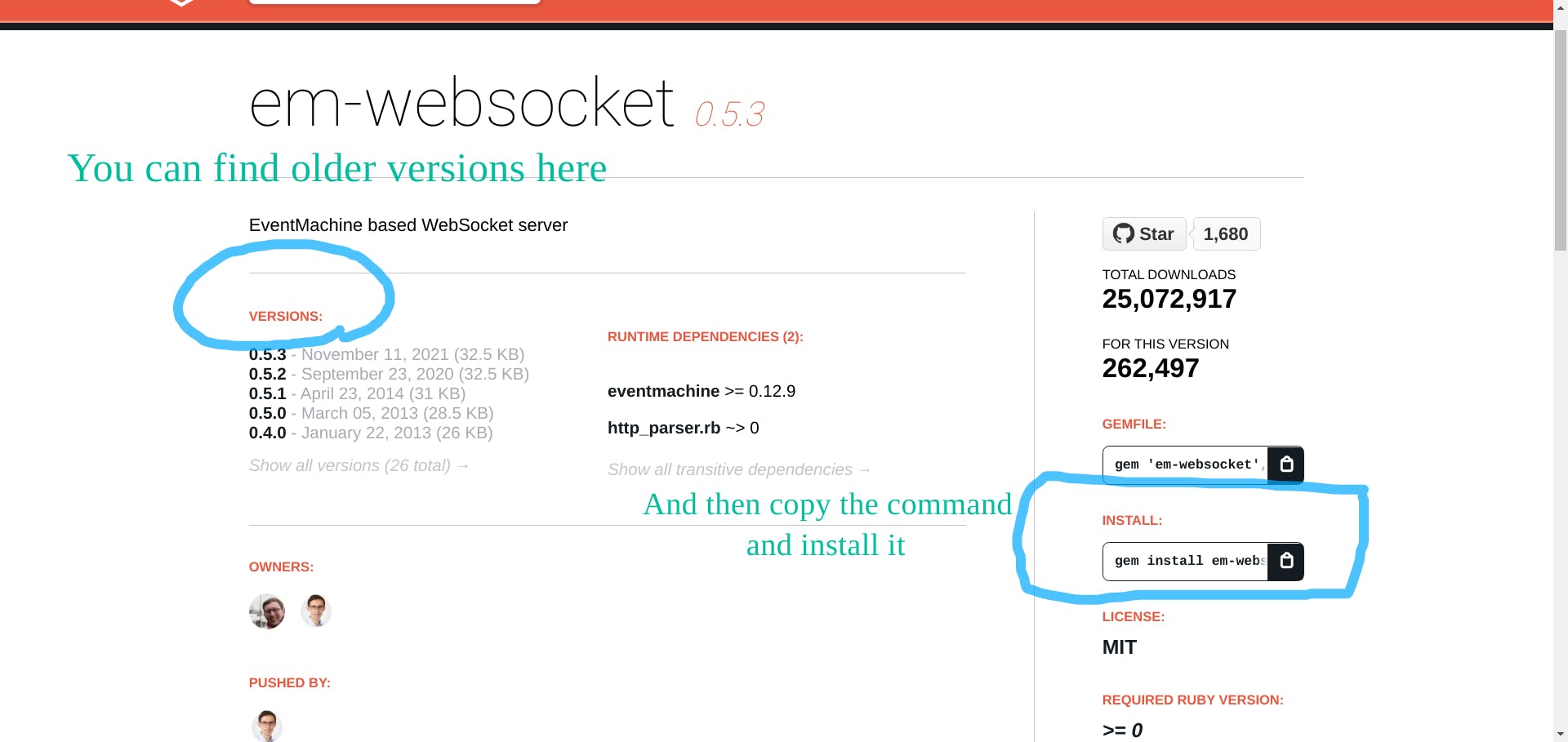
6. Removing toolbox :
If your toolbox container has stopped working for whatever reason and you can't enter in it, you can just remove the toolbox by running this command :
toolbox rm -f -a
and reinstall jekyll and its requirements again
Credit to this person I'd like to thank endless forum for helping me to get started with Jekyll.
Here is the original topic that I have created on forum.